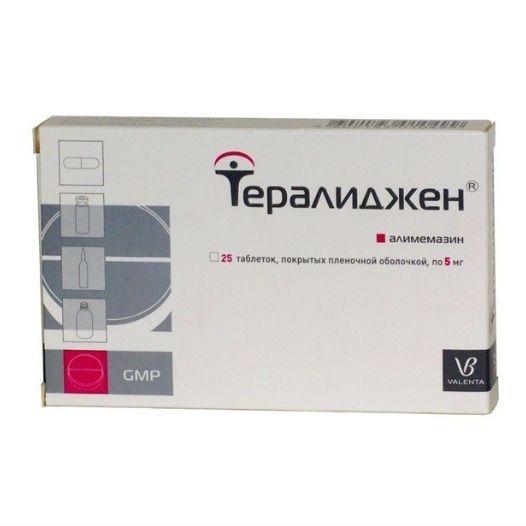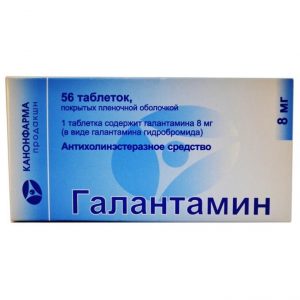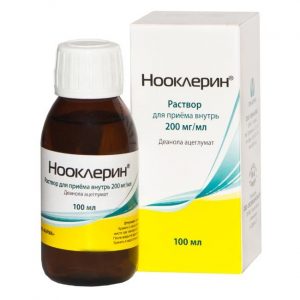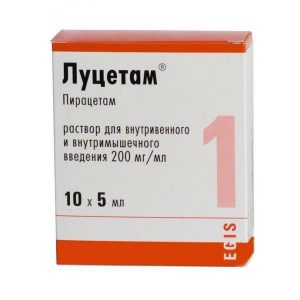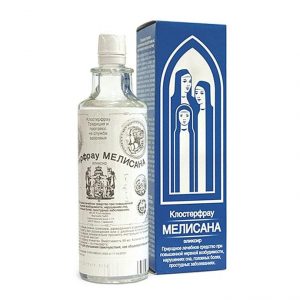Description
Release form
film-coated tablets
Packing
25 pcs.
Pharmacological action
Pharmacotherapeutic group: anxiolytic agent. Sedative
ATX Code: [R06AD01].
Pharmacological properties:
Is a derivative of phenothiazine. Alimemazine acts as a mild sedative and anti-anxiety agent, has a positive effect on senestopathy, obsession and phobia. It is used for psychosomatic manifestations developing as a result of neurovegetative disorders, vascular, traumatic and infectious disorders of the functions of the central nervous system. Sedation helps to normalize sleep in patients of this category. It has antiemetic and antitussive activity. Sedative and anxiolytic effects are due to blockade of adrenoreceptors of the reticular formation of the brain stem. The antiemetic and vegetostabilizing effect is due to the blockade of dopamine D2 receptors in the trigger zone of the vomiting center. In connection with antihistamine activity, alimemazine is used for allergic diseases, especially the respiratory tract, and for itching. Alimemazine is more active in antihistamine and sedation than diprazine. The antipruritic effect is due to the effect on the histamine receptors of the first type.
Indications
As a sedative (sedative), anxiolytic (anti-anxiety), and an agent that improves falling asleep:
– dementia (including dementia due to epilepsy), which occurs with manifestations of psychomotor agitation, anxiety (as part of combination therapy)
– organic anxiety disorder (as monotherapy or as part of combination therapy)
– schizophrenia (with a predominance of neurosis-like disorders, as part of combination therapy)
– mood disorders (affective disorders) – as part of combination therapy
– generalized anxiety disorder (as part of combination therapy)
– obsessive-compulsive disorder (as part of combination therapy)
– reaction to severe stress and impaired adaptation (acute reaction to stress, post-traumatic stress disorder, unspecified reaction to severe stress, other reactions to severe stress) – as part of
combination therapy – dissociative (conversion) disorders (as part of combination therapy)
– somatoform disorders (somatized disorder, undifferentiated somatoform disorder, hypochondria disorder, somatoform vegetative nervous system dysfunction, somatoform dysfunction, autonomic nervous system disorder, unspecified somatoform disorder, other somatoform disorders) – as part of combination therapy for severe anxiety n or standard therapy inefficiency
– unspecified autonomic disorder (autonomic) nervous system, other disorders of the autonomic (autonomous) nervous system (as part of combination therapy)
– anorexia nervosa (as part of combination therapy)
– emotionally unstable personality disorder (impulsive and borderline types) – as part of the combination therapy
– hysterical personality disorder, anxious (evading avoiding) personality disorder (as part of combination therapy)
– persistent personality change after experiencing a disaster (as part of combination therapy)
– hyperkinetic asstroystvo behavior (as part of combination therapy)
– conduct disorder, limited by the family (as part of combination therapy with standard therapy ineffective)
– unsocialized behavior disorder (as monotherapy or as part of combination therapy)
– anxiety, agitation and other symptoms and signs related to the emotional state (as part of combination therapy)
– other neurotic disorders (neurasthenia, unspecified neurotic disorder) – as part of
combination therapy – insomnia of inorganic etiology (as part of combination ovannoy therapy after failure of standard therapy)
– emotional disorders, the beginning of which is specific to childhood (phobic anxiety disorder of childhood, social anxiety disorder in childhood, disorder due to sibling (with siblings) rivalry, unspecified emotional disorder in childhood, other emotional disorders in childhood) – as part of combination therapy.
As an anti-allergic agent:
– itching, regardless of location and etiology (itching of the anus, itching of the vulva, unspecified anogenital itching, pruritus with photocontact dermatitis and solar urticaria, dermatitis, eczema, urticaria, bites or stinging of non-venomous non-venomous insects chickenpox, measles, Hodgkin s disease, diabetes mellitus, shingles) as a monotherapy or as part of the
combination therapy – asthma, hay fever, whooping cough (as part of complex therapy as an antialancer allergic cough suppressant, shortness of breath and asthma attacks)
– unspecified allergy (as monotherapy or as part of combination therapy).
Contraindications
– hypersensitivity to the components of the drug
– lactose intolerance, lactase deficiency, glucose-galactose malabsorption
– closed-angle glaucoma
– prostate hyperplasia – severe or severe liver disease – severe or severe liver disease
– simultaneous use of monoamine oxidase inhibitors (MAOs)
– pregnancy
– lactation
– children under 7 years of age.
Precautions for use With caution, the drug should be used for alcoholism, if there is a history of complications with the use of phenothiazine-type drugs for obstruction of the bladder neck with a tendency to urinary retention during epilepsy of open-angle glaucoma jaundice inhibition of bone marrow function of hypotension.
Special instructions
Alimemazine may mask the ototoxic effect (tinnitus, dizziness) of shared drugs. Alimemazine increases the body’s need for riboflavin. To prevent distortion of the results of skin scarification tests for allergens, the drug should be discontinued 72 hours before allergological testing. During the treatment period, false-positive results for the presence of pregnancy are possible. During treatment should not drink alcohol.
Influence on the ability to drive vehicles and control mechanisms: Against the background of treatment with the drug, you should not engage in activities that require an increased concentration of attention and speed of psychomotor reactions (driving and other vehicles, working with moving mechanisms, the work of the dispatcher and operator).
Composition
One scoreboardtissue contains:
Active ingredient: Alimemazine tartrate – 5.0 mg
Excipients: lactose monohydrate – 73.4 mg, microcrystalline cellulose – 60.8 mg, pregelatinized starch – 16.0 mg, colloidal silicon dioxide (aerosil) – 1 , 6 mg, croscarmellose sodium – 1.6 mg, magnesium stearate – 1.6 mg.
Shell composition: for 5 mg dosage: Opadry II 85F34655 – 5.0 mg: partially hydrolyzed polyvinyl alcohol – 40.00%, macrogol-3350 – 20.20%, talc – 14.80%, titanium dioxide E 171 – 19 , 44%, dye carmine red E 120 – 4.50%, aluminum varnish based on dye sunny sunset yellow E 110 – 1.05%, aluminum varnish based on indigo carmine E 132-0.01%.
Dosage and Administration
Inside. Without chewing. The effect of the drug is dose-dependent in nature, the doses are selected depending on the goals of therapy. Adults
To achieve a vegetative stabilizing effect of 15-60 mg / day.
To achieve the anxiolytic effect of 20-80 mg / day.
To achieve a sedative and / or hypnotic effect 5-10 mg once (20-30 minutes before bedtime).
For the symptomatic treatment of allergic reactions 10-40 mg / day.
Course treatment should be started with 2.5-5 mg in the evening with a gradual increase in the daily dose to the desired effect. The daily dose can be divided into 3-4 doses.
The duration of a course of treatment can be from 2 to 6 months or more and is determined by the doctor.
The highest adult dose is 500 mg / day, for the elderly (over 60 years) 200 mg / day.
Children from 7 years of age are prescribed according to the following scheme (depending on age and body weight).
To achieve the anxiolytic effect of 20-40 mg / day.
The course of treatment should be started with 2.5-5 mg with a gradual increase in the daily dose to the desired effect. The daily dose can be divided into 3-4 doses.
To achieve a sedative and / or hypnotic effect, 2.5-5 mg once (20-30 minutes before bedtime).
To achieve a sedative effect in violation of behavior in psychotic conditions, it is possible to increase the daily dose to 60 mg / day.
For the symptomatic treatment of allergic reactions 5-20 mg / day.
The duration of a course of treatment can be from 2 to 6 months or more and is determined by the doctor.
Side effects
Side effects are extremely rare and mild.
From the nervous system: drowsiness, lethargy, fatigue (occur mainly in the first days of administration and rarely require drug withdrawal), paradoxical reaction (anxiety, agitation, nightmares, irritability) confusion, extrapyramidal disorders (hypokinesia, akathisia tremor).
On the part of the sensory organs: blurred visual perception (paresis of accommodation), noise or ringing in the ears.
From the cardiovascular system: dizziness, decreased blood pressure (BP), tachycardia.
From the digestive system: dry oral mucosa, atony of the gastrointestinal tract, constipation, decreased appetite.
From the respiratory system: dry nose, throat, increased viscosity of bronchial secretions.
From the urinary system: atony of the bladder, urinary retention.
Other: allergic reactions, suppression of bone marrow hematopoiesis, increased sweating, muscle relaxation, photosensitivity
Drug Interactions
Alimemazine enhances the effects of narcotic analgesics, sleeping pills, anxiolytic (tranquilizers) and antipsychotic (antipsychotic) drugs (PM), as well as drugs for general anesthesia, m-anticholinergics and hypotensive drugs (hypotensive). Tricyclic antidepressants and anticholinergic drugs enhance the m-anticholinergic activity of alimemazine. With the simultaneous use of alimemazine with ethanol, increased inhibition of the central nervous system is possible. Alimemazine weakens the effects of phenamine derivatives, m-cholinomimetics, ephedrine, guanethidine, levodopa, dopamine. With the combined use of alimemazine with antiepileptic drugs and barbiturates, the threshold for convulsive activity decreases (dose adjustment is required). With the combined use of alimemazine with beta-blockers, a pronounced decrease in blood pressure and arrhythmias is possible. Alimemazine weakens the effect of bromocriptine. With simultaneous use in nursing mothers, an increase in the concentration of prolactin in the blood serum is possible. With the simultaneous use of alimemazine and MAO inhibitors (simultaneous use is not recommended) and alimemazine and phenothiazine derivatives, the risk of arterial hypotension and extrapyramidal disorders increases. With the simultaneous use of alimemazine with drugs that inhibit bone marrow hematopoiesis, the risk of myelosuppression increases. The combined use of phenothiazine derivatives (which include alimemazine) with hepatotoxic drugs can enhance the manifestations of hepatotoxicity of the latter.
Overdose
Symptoms: increased manifestations of the described side effects, with the exception of allergic reactions.
Treatment: drug withdrawal, symptomatic therapy.
Storage Conditions
In a dark place at a temperature not exceeding 25 ° C. Keep out of reach of children.
Expiration
2 years. Do not use after the expiry date stated on the packaging.
active substance
alimemazin
Terms leave through pharmacies
In retseptu
lekarstvennaja form
tablets
